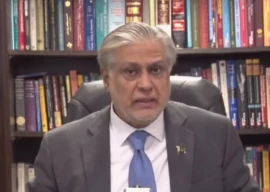
The Pakistan Institute of Legislative Development and Transparency (Pildat), a think tank working for strengthening democracy and democratic institutions in Pakistan, has tabled a five-point reforms programme in order to make the national budget reflect people’s aspirations.
It proposes enhancement in the duration of budget session from the existing average of 10 days to at least 60 days by tabling the finance bill in May.
“Supremacy of parliament is constantly violated during the budget-making process,” said Ahmed Bilal Mehboob, Executive Director Pildat. During the last 10 years, the National Assembly took an average 10 days every year to pass the budget, he said.
The think tank suggests that the National Assembly Standing Committee on Finance should be strengthened and given a timeframe of at least 45 days to debate budget proposals.
The finance ministry usually prepares the budget in consultation with the International Monetary Fund (IMF) and other multilateral donors. The budget is tabled in parliament in the first week of June and the National Assembly stamps it in the third week.
Government ministries and departments spend much more than what the assembly allocates and the finance ministry gets ex-post facto approval of this spending. Only last year, the ministries spent Rs360 billion more than the allocated budget, shows the finance ministry documents.
The think tank also demands printing of details of the defence budget without compromising national security and setting up of a budget analysis unit in the National Assembly to assist the parliamentarians in understanding economic jargons and difficult numbers. This year the government allocated Rs442 billion in defence budget and according to IMF documents the amount has been increased to Rs552 billion without even intimating parliament.
“We have a habit of commenting on budget output, nobody ever talks about the processes,” said Dr Sania Nishter, an activist.
Abdul Rasheed Godil, an MQM member of the National Assembly, admitted that parliament or even the National Assembly Standing Committee on Finance did not have any role in budget-making. He said former finance minister Shaukat Tarin agreed with the IMF that the value-added tax would be imposed without the consent of parliament.
Pakistan’s budgetary process has, for various historical reasons, attracted little input from parliamentarians, political parties and citizen groups. The budget process has, in consequence, become solely the domain of the executive, leaving little scope for input, analysis or accountability, said Mehboob.
Published in The Express Tribune, October 19th, 2010.
1718870162-0/BeFunky-collage-(60)1718870162-0-405x300.webp)
1730504285-0/Martha-(1)1730504285-0-165x106.webp)




1719053250-0/BeFunky-collage-(5)1719053250-0-270x192.webp)










COMMENTS
Comments are moderated and generally will be posted if they are on-topic and not abusive.
For more information, please see our Comments FAQ